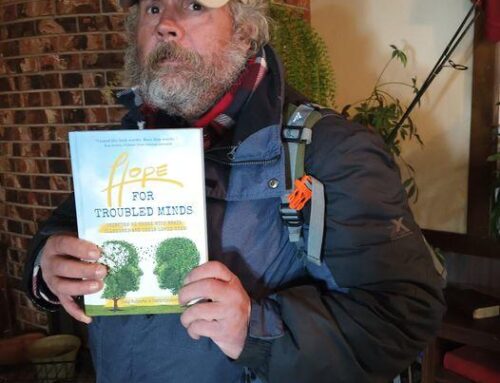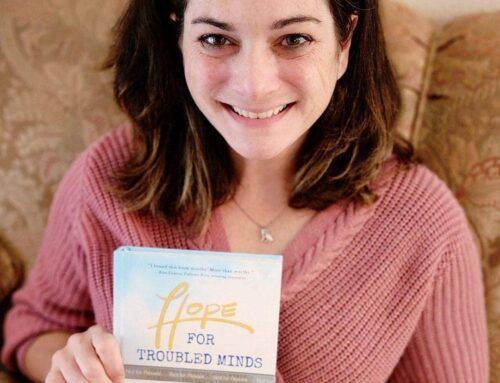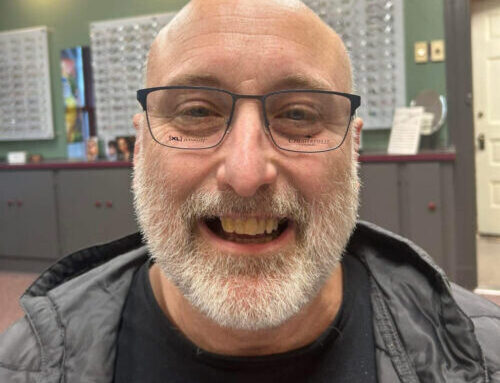I have absolutely no pleasure in the stimulants in which I sometimes so madly indulge. It has not been in the pursuit of pleasure that I have periled life and reputation and reason. It has been the desperate attempt to escape from torturing memories, from a sense of insupportable loneliness and a dread of some strange impending doom. ~ Edgar Allan Poe
Share with the LORD’s people who are in need. Practice hospitality. (Romans 12.13)
chapter five – spiritual encounter
I had a good friend in college, Steve Franz, who used to say, I drink and smoke because they are the best ways I know to commit suicide in a manner deemed acceptable by society. I’m convinced no one really wants to kill themselves. We just want to stop the pain. We want to silence the voices.
According to the National Survey on Drug Use and Health, 9.2 million U.S. adults experienced both mental illness and a substance use disorder in 2018. Among those addicted to drugs or alcohol, as many as half have a clinical mental health diagnosis. Substances may hide symptoms for a while, they may keep the demons away for a time, but they are sure to return with a vengeance.
My own path led through a period of substance abuse. In college, it seemed a rite of passage to get drunk and stoned. Even on a daily basis. I was still able to keep my grades up, write for the campus newspaper, even serve as student body president. The waves I rode between being a despairing drunk and an enlightened pothead were my way of managing moods.
After college I was out of control. No drink was strong enough to numb my pain. No drug potent enough to pick me up out of the pit. I lived alone, spending days and nights documenting my dreadful times on an upright Smith-Corona, circa 1952. I worked at a plastics factory, boxing up loads of bags to be sent to clothing stores. The rhythmic pounding of the machines penetrated my skull, and I started hearing the voices again, in earnest. I tried to shut them out with music, but nothing would tune out these insidious, intrusive, invasive voices.
Then, I began to hear a symphony of silence. It didn’t come at once. It didn’t produce a complete quietude. But it did bring a measure of harmony to the dissonance in my mind. It was a still, small voice. It soothed my searing soul. I started attending a small country church, Grammar Presbyterian. The people there didn’t mind me coming to worship smelling like burnt plastic. I don’t think they knew just what to make of me, but they accepted me all the same. One of the saints, Annie Jaquess, visited my home and invited me to become a member the next Sunday.
Easter Sunday, 1987, as I was driving to church to become one of the faithful flock, I saw out of the corner of my eye an old woman pacing in a bank parking lot. I pulled over and walked up beside her. She was confused. I told her it was Sunday, the bank was closed. She spoke, but made no sense. I offered to take her home, but she couldn’t tell me where she lived. I didn’t know what to do, so I invited her into my truck and took her to a neighboring church not familiar to me. We followed the crowd of well-clad worshipers along the path leading to the sanctuary. We were welcomed at the door by a man with a saintly expression shining through a weary brow.
I told him what I knew of the woman’s story, that she was lost and I was trying to help her find her way home. He listened. Carefully. Prayerfully. Then he gently placed his hand on her shoulder and guided her back to a quiet room where he handed her a muffin and a cup of coffee. The warmth of his hospitality thawed the cold confusion that clouded her mind. She came to her senses. Then, after they celebrated together the new life of the Risen Christ, he took her home. I left the church in tears, feeling embraced by the grace of God reaching out through the hands of God’s saints. It wasn’t just the woman who was lost.
For years, I have told this story as the pivotal event in my conversion to Christian service. I have since gone back to the church to thank them. They politely received my thanks. Yet, there is no living memory of anything of the sort happening on that Easter Sunday. Maybe it wasn’t significant enough for them to mark it as a moment to remember. Maybe the colorful banners or the record attendance or the sound of the bell choir have erased other memories of things that happened that day. I’ve even wondered if I dreamed it or if it was part of an elaborate hallucination. Stranger things have happened to me.
All I can say is it was a wondrous sign of how ministry can be when we are ready and willing to help people find their way home.
The next day I began the process to enroll in seminary.
Discover more from Delight in Disorder
Subscribe to get the latest posts sent to your email.







